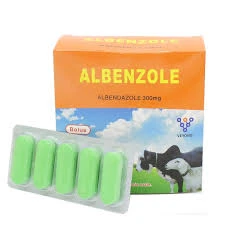- Afrikaans
- Albanian
- Amharic
- Arabic
- Armenian
- Azerbaijani
- Basque
- Belarusian
- Bengali
- Bosnian
- Bulgarian
- Catalan
- Cebuano
- Corsican
- Croatian
- Czech
- Danish
- Dutch
- English
- Esperanto
- Estonian
- Finnish
- French
- Frisian
- Galician
- Georgian
- German
- Greek
- Gujarati
- Haitian Creole
- hausa
- hawaiian
- Hebrew
- Hindi
- Miao
- Hungarian
- Icelandic
- igbo
- Indonesian
- irish
- Italian
- Japanese
- Javanese
- Kannada
- kazakh
- Khmer
- Rwandese
- Korean
- Kurdish
- Kyrgyz
- Lao
- Latin
- Latvian
- Lithuanian
- Luxembourgish
- Macedonian
- Malgashi
- Malay
- Malayalam
- Maltese
- Maori
- Marathi
- Mongolian
- Myanmar
- Nepali
- Norwegian
- Norwegian
- Occitan
- Pashto
- Persian
- Polish
- Portuguese
- Punjabi
- Romanian
- Russian
- Samoan
- Scottish Gaelic
- Serbian
- Sesotho
- Shona
- Sindhi
- Sinhala
- Slovak
- Slovenian
- Somali
- Spanish
- Sundanese
- Swahili
- Swedish
- Tagalog
- Tajik
- Tamil
- Tatar
- Telugu
- Thai
- Turkish
- Turkmen
- Ukrainian
- Urdu
- Uighur
- Uzbek
- Vietnamese
- Welsh
- Bantu
- Yiddish
- Yoruba
- Zulu
Nov . 26, 2024 06:14 Back to list
Effective Antiparasitic Treatments for Dogs to Keep Them Healthy and Happy
Understanding Antiparasitic Treatments for Dogs
Parasites are unwanted guests that can affect the health and well-being of our beloved pets, particularly dogs. From fleas and ticks to intestinal worms, these organisms can cause a range of health issues, making it crucial for dog owners to understand the types of antiparasitic treatments available. This article will delve into the various antiparasitic options, their effectiveness, and how to choose the right one for your dog.
Types of Parasites
Before selecting an antiparasitic treatment, it's important to recognize the different types of parasites that can affect dogs. The two main categories are ectoparasites and endoparasites.
1. Ectoparasites These parasites live on the surface of the host. Common ectoparasites in dogs include fleas, ticks, and mites. Fleas can cause discomfort through itching and scratching while also transmitting diseases like tapeworms. Ticks are notorious for carrying Lyme disease and other tick-borne illnesses.
2. Endoparasites These parasites live inside the host. They include various types of worms such as roundworms, hookworms, whipworms, and tapeworms. Endoparasitic infections can lead to symptoms ranging from gastrointestinal issues to more severe health problems, including anemia and weight loss.
Antiparasitic Treatments
When it comes to treating parasitic infections, there are several options available to dog owners
. The choice of treatment will depend on the type of parasite, the severity of the infestation, and the overall health of the dog.1. Topical Treatments These are applied directly to the dog's skin and include spot-on treatments that kill fleas and ticks. Brands like Frontline and Advantage are popular for their effectiveness. Topical treatments typically need to be reapplied monthly to ensure ongoing protection.
2. Oral Medications Oral antiparasitic drugs are another effective option, particularly for treating internal parasites. Medications such as praziquantel are commonly prescribed for tapeworms, while other formulations target roundworms and hookworms. Some proactive solutions also combine flea and tick prevention with internal parasite control.
antiparasitic for dogs

3. Collars Flea and tick collars are convenient options that can provide long-lasting protection. These collars release chemicals that repel or kill parasites over an extended period, making them a low-maintenance alternative to monthly treatments.
4. Shampoos and Sprays For immediate relief from flea infestations, medicated shampoos can help eliminate existing fleas. Sprays may also be used to treat the dog's environment, reducing the risk of reinfestation.
Choosing the Right Treatment
When selecting an antiparasitic treatment for your dog, consider the following factors
- Veterinarian Consultation Always consult your veterinarian before starting any antiparasitic treatment. They can accurately diagnose the type of parasite and recommend effective treatment options tailored to your dog's health needs.
- Dog's Age and Size Treatments vary in dosage based on the dog's age and size. Ensure that any medication or treatment is appropriate for your dog's specific characteristics.
- Lifestyle and Environment Dogs that spend a lot of time outdoors or in contact with other animals may be more susceptible to parasites. Tailoring your preventive measures according to their lifestyle can enhance protection.
- Frequency of Treatment Understand how often the treatment needs to be reapplied and assess your ability to maintain that schedule. Some treatments offer longer-lasting protection, while others require more frequent applications.
Conclusion
Protecting your dog from parasites is crucial for their health and comfort. With a variety of antiparasitic treatments available, dog owners can choose the most suitable options based on their pet's needs. Regular veterinary check-ups, combined with appropriate antiparasitic measures, will help ensure that your furry friend remains free from parasites and enjoys a happy, healthy life. Remember, prevention is always better than cure, so stay proactive in your efforts to protect your four-legged family member.
-
Guide to Oxytetracycline Injection
NewsMar.27,2025
-
Guide to Colistin Sulphate
NewsMar.27,2025
-
Gentamicin Sulfate: Uses, Price, And Key Information
NewsMar.27,2025
-
Enrofloxacin Injection: Uses, Price, And Supplier Information
NewsMar.27,2025
-
Dexamethasone Sodium Phosphate Injection: Uses, Price, And Key Information
NewsMar.27,2025
-
Albendazole Tablet: Uses, Dosage, Cost, And Key Information
NewsMar.27,2025













